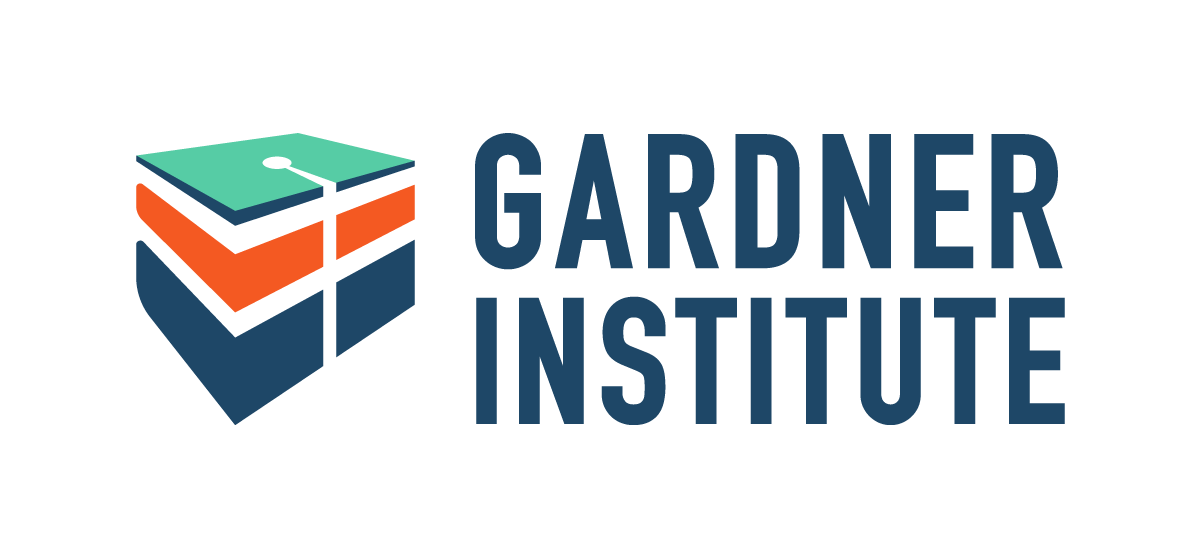August 7, 2025
Summer 2025
By Jessica Groyon
Interning with the Gardner Institute this summer ended up being a lot more than a professional experience. It became a journey of clarity and growth for me. I knew I wanted to pursue a career in data analytics, but I wasn’t sure which industry I wanted to go into.
My main project involved analyzing longitudinal data on enrollment, retention, and graduation rates using the Integrated Postsecondary Education Data System (IPEDS) from 2019 to 2023. It was my first time working directly with a primary dataset of this scale, and it gave me the opportunity to build an interactive dashboard using Power BI to help visualize trends and uncover insights across higher education institutions. Through this work, I explored how datasets can inform institutional strategy, student success, and engagement efforts, something I had never imagined doing when I first chose my major.
For the first three years of my college career, I believed that my major in Information Systems had a finite destination. I assumed the only paths available to me were software engineering, web development, or technical support in a tech company. It wasn’t until my junior year, when I took a course that introduced me to Tableau, SQL, and Python, that I discovered data analytics. Data was a whole new way to see my role in tech. Data wasn’t just about numbers and dashboards; it was about connecting information to people and organizations, telling stories that could lead to change.
This internship gave me the chance to find out what industries I could explore where data is used to make a real impact. Working in higher education, a field I hadn’t previously considered, showed me how data can influence institutional decisions, initiatives, and student success strategies. It broadened my understanding of the possibilities that exist for someone with my background and interests, and made me even more excited to pursue a mission-driven career in data analytics.
At the beginning of my internship, I had the chance to meet with Dr. John Gardner. During that conversation, he gave me a piece of advice that stuck with me throughout the entire summer: “Consider your FIT.” At first, I thought it was just something to think about in the context of the internship, but that mindset carried into every part of my summer. Whether I was tackling new projects at my other internship, navigating social interactions, or juggling other responsibilities outside of this role, I kept returning to that question: Does this align with who I am and who I want to become? The idea of “fit” helped me reflect more intentionally on what work feels meaningful, what environments I thrive in, and how I can use my skills to serve a greater purpose.
Starting this project was both exciting and a little nerve-racking. As someone still developing my technical skills, I had never worked directly with a primary data source like IPEDS before. In my classes, I was used to clean, structured datasets, so essentially building my dataset from scratch felt intimidating. However, I knew this was an opportunity for me to get a glimpse at where data is coming from and what they truly mean.
From the beginning, I felt supported by the Gardner Institute team, especially Dr. Ligia Perez and Dr. Brent Drake. Both of them encouraged me to ask questions, take ownership of the project, and stay curious throughout the process. Whether we were reviewing column definitions or troubleshooting Power BI filters, their mentorship helped me feel more confident in my abilities and less afraid of making mistakes along the way.
As the weeks went on, I became more comfortable navigating Power BI, merging datasets, and building visualizations that helped break down complex data into more meaningful insights. I began analyzing trends by sector and student demographics, which deepened my understanding of how institutional context plays a role in student success. Through trial and error, I learned how foundational data preparation is and how important it is to approach analysis with care and intention.
At the end of my internship, I am walking away with stronger technical skills and a clearer sense of direction. I am not certain if pursuing a career in higher education is the best long-term fit for me, but this internship made me more comfortable navigating unfamiliar industries and seeing where my skills might be of value. I’m incredibly appreciative of this experience and the mentorship I received. As I head into my senior year, I’m taking time to explore different paths within data analytics, with a clearer sense of how to evaluate not just what I can do, but where I truly belong.

